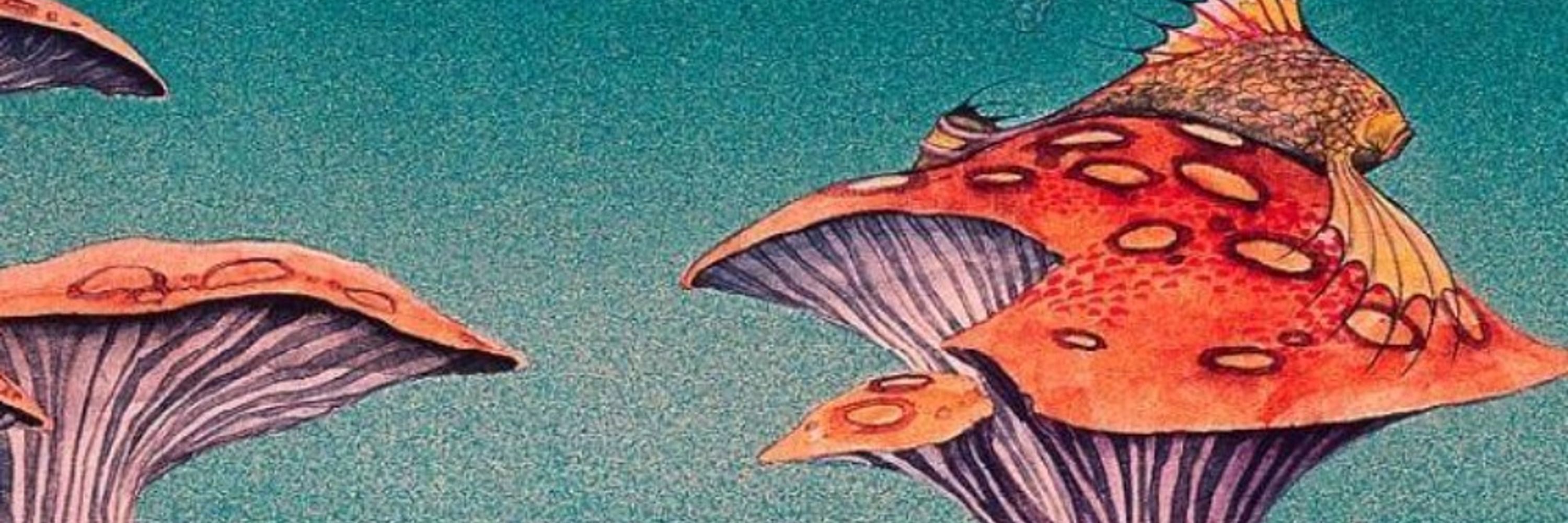
Professor in Communications at U Catolica de Chile | Researcher with IMFD and NUDOS | Chief Science Officer http://IPIE.info | Political communication, technology, journalism
Sebastián Valenzuela is a Chilean academic and researcher specializing in political communication, journalism, and social media. He is a Professor at the School of Communications at the Pontifical Catholic University of Chile Pontifical Catholic University of Chile) and Chief Science Officer of the International Panel on the Information Environment International Panel on the Information Environment. Valenzuela's research has gained international recognition and has been featured in media outlets such as the BBC, The New Yorker, Time, and The Wall Street Journal. .. more
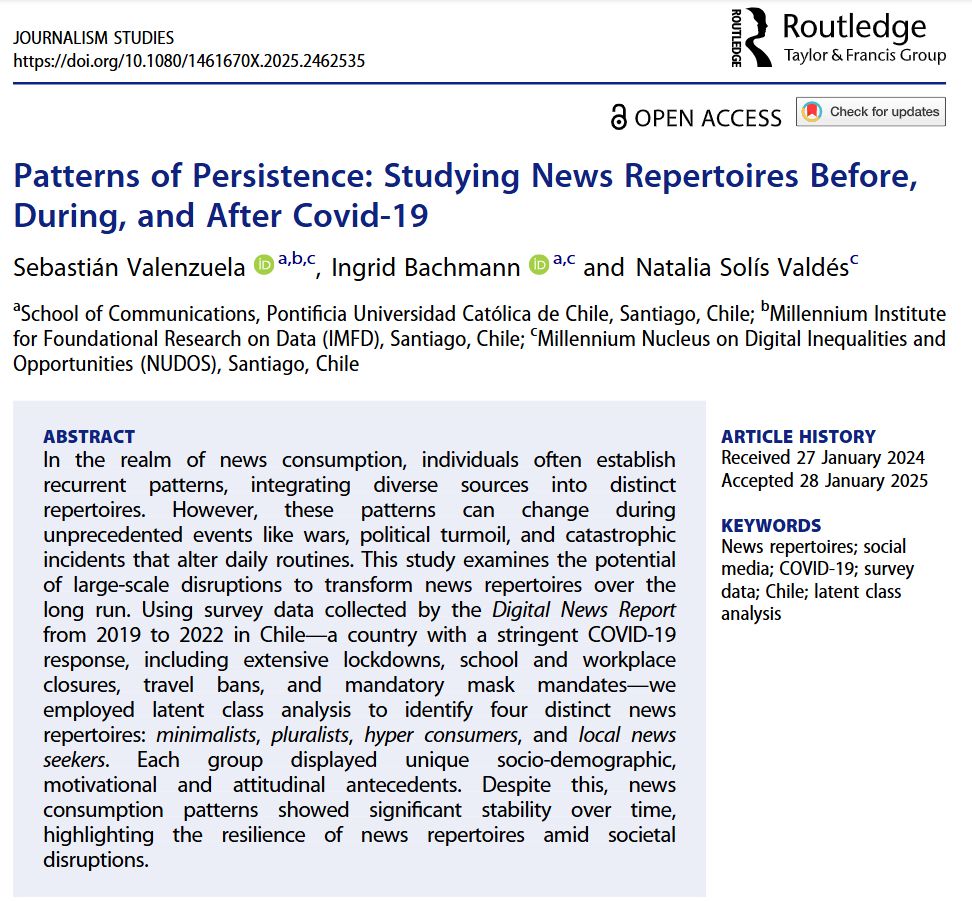
Using surveys from @reutersinstitute.bsky.social, we examine how large-scale disruptions like COVID-19 alter information repertoires.
TL;DR: Despite drastic changes to people's routines, news media use remained strikingly stable.
🔗 doi.org/10.1080/1461... (OA)
Reposted by Sebastián Valenzuela

ungated: t.co/5bzHCTdmR2
Reposted by Sebastián Valenzuela
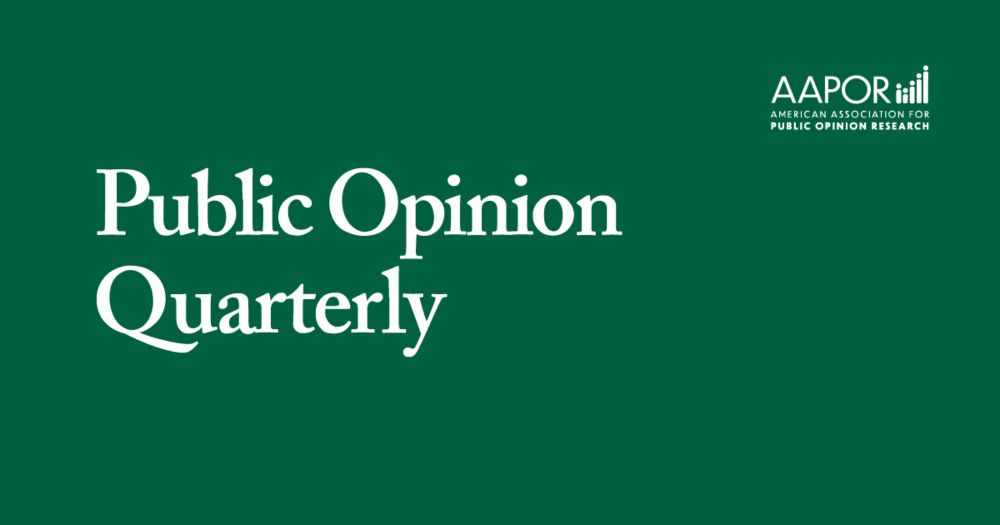
Are you researching public opinion across countries & contexts? Submit to the Public Opinion Quarterly special issue I’m co-editing with Hernando Rojas & Ting Chen. Let's advance nuanced, cross-contextual insights! 🌍
📅 Deadline: May 18, 2025
🔗 CFP: academic.oup.com/poq/pages/ad...
Are you researching public opinion across countries & contexts? Submit to the Public Opinion Quarterly special issue I’m co-editing with Hernando Rojas & Ting Chen. Let's advance nuanced, cross-contextual insights! 🌍
📅 Deadline: May 18, 2025
🔗 CFP: academic.oup.com/poq/pages/ad...

Reposted by Sebastián Valenzuela, Florian Keusch
Reposted by Sebastián Valenzuela
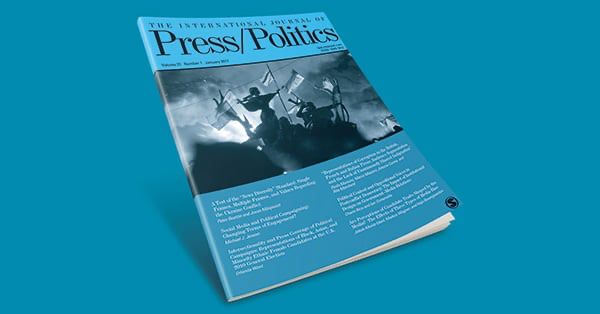
Advancing the Study of Political Misinformation Across Countries and Platforms
The SI explores how misinfo spreads, is perceived & countered across political systems, info environments & platforms.
Read the intro: journals.sagepub.com/doi/10.1177/...

Reposted by Sebastián Valenzuela, Alexandra Juhasz, Sandra González‐Bailón

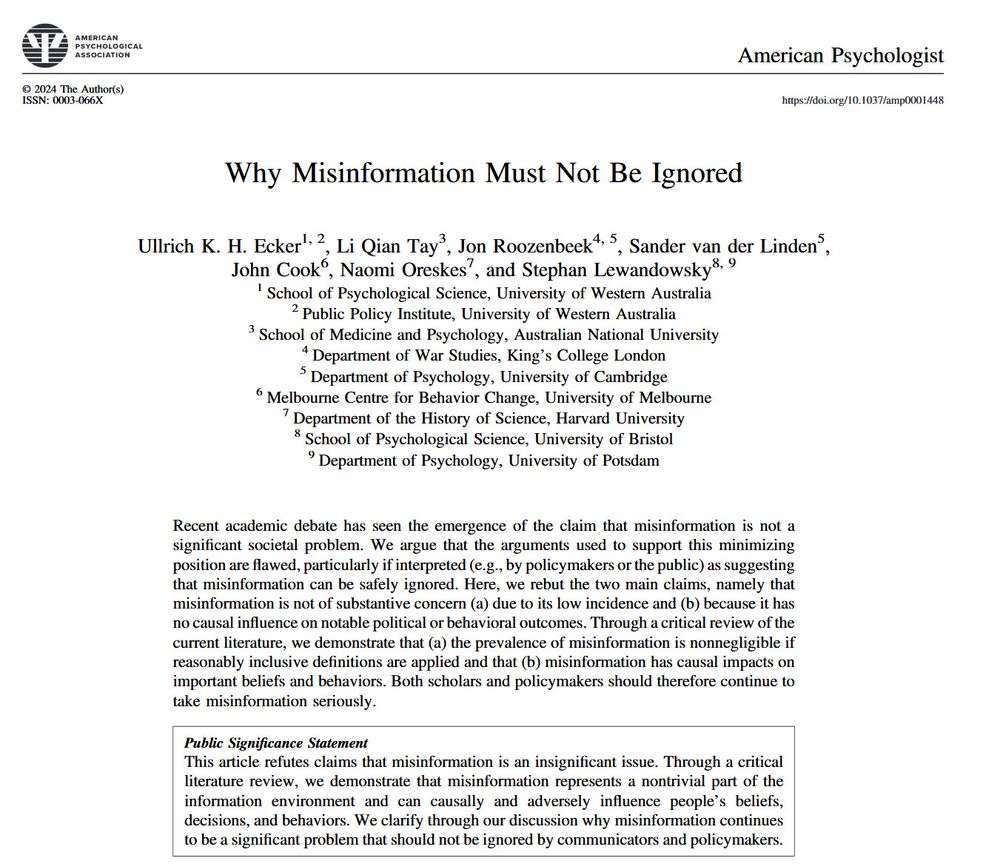
(1) The prevalence of misinformation in society is substantial when properly defined.
(2) Misinformation causally impacts attitudes and behaviors.
psycnet.apa.org/fulltext/202...
“What does PolComm Stand for? Normative Dimensions of Political Communication Research & Theorizing”
📖 Full issue: politicalcommunication.org/issue/fall-2...
A 🧵 on the essays featured in this issue:


“What does PolComm Stand for? Normative Dimensions of Political Communication Research & Theorizing”
📖 Full issue: politicalcommunication.org/issue/fall-2...
A 🧵 on the essays featured in this issue:
(1) The prevalence of misinformation in society is substantial when properly defined.
(2) Misinformation causally impacts attitudes and behaviors.
psycnet.apa.org/fulltext/202...

Reposted by Sebastián Valenzuela, Kevin Coe, Shelley Boulianne
APSA & ICA's PolComm Divisions are looking for a new...
(1) Webmaster 💻 &
(2) Social Media Officer🤳!
⏳Deadline: Friday, 10 January 2025.
Full Call here:
politicalcommunication.org/wp-content/u...
Full CFP: s3-us-west-2.amazonaws.com/clarivate-sc...
Deadline: May 18, 2025.

